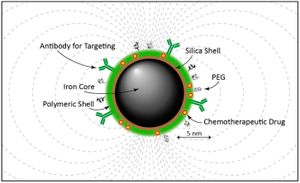Discussions at Telefisco 2025 have underscored the Italian government's commitment to reforming tax policies aimed at benefitting the middle class, as articulated by Deputy Minister of Economy Maurizio Leo and the Director of the Revenue Agency, Vincenzo Carbone. The annual event, held on February 5, 2025, serves as a key platform for updating stakeholders on pressing fiscal matters.
Leo announced plans to restructure the income tax (Irpef) system, targeting middle-income earners with annual incomes ranging from 28,000 to 60,000 euros. "We aim to meet the needs of middle-income earners with incomes from 28,000 to 50,000 euros and possibly up to 60,000," he stated. This proposed change is part of the government's strategy to utilize funds recovered from tax evasion, which reportedly reached 32.7 billion euros, for implementing broad fiscal reforms.
At the heart of the discussions was the imperative for prudent financial governance. Leo emphasized, "The accounts must be prudent; we are working with the Revenue Agency and the Treasury on this"—a clear indication of the government's cautious yet optimistic approach. The reforms will likely coincide with previous adjustments made, such as reducing Irpef tax brackets from four to three, which aims to relieve some of the burdens on taxpayers.
Vincenzo Carbone echoed these sentiments, reflecting on the struggles faced by Italian citizens and businesses, and highlighting the substantial fiscal refunds distributed last year. He remarked, "We have returned 24.2 billion euros to citizens and businesses; these funds make a difference for the entire economic system," emphasizing the importance of timely fiscal support to promote liquidity within the economy.
Another key aspect discussed was the various bonuses related to home renovation and energy efficiency. Telefisco 2025 provided updates on housing incentives concerning the Ecobonus and other remodeling supports, which have seen adjustments to their criteria. With notable reforms to the Superbonus 110%, the government hopes to channel investments toward energy efficiency, benefitting both homeowners and the broader economy.
The government also deliberated proposals related to the web tax and minimum global tax initiatives under the new US administration. Leo noted, "The web tax is not only Italian; other EU countries have adopted this measure," showcasing the collaborative effort needed across borders to address taxation of digital services effectively. He stressed the importance of finding equilibrium through constructive dialogue to navigate potential challenges stemming from international policies.
Regarding tax collection, Leo underscored the need to clarify the issues surrounding the staggering 1,275 billion euros of tax arrears, advocating for transparency and smart management strategies. This aligns with the government's vision to commit to enhancing tax procedures and encouraging voluntary compliance.
Before concluding, Leo highlighted another notable aspect of the reforms: the expansion of payment plans to make it easier for taxpayers to navigate their obligations without undue burden, allowing for payment terms extending up to 120 installments for amounts under 120,000 euros.
Telefisco 2025's comprehensive focus has illuminated Italy's strategic steps toward fostering economic stability through fiscal reform, showcasing the government's intent to not only recover from previous fiscal shortcomings but also to pave the way for future growth and sustainability.
With the event's strong emphasis on restructuring Italy's tax framework, stakeholders can look forward to constructive changes aimed at enhancing financial security for families and businesses amid ever-evolving economic challenges.



